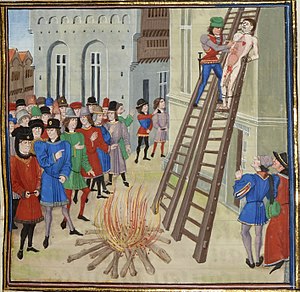mrswdk wrote:Dukasaur wrote:mrswdk wrote:And now the minority anti-Beijing brigade, cheered on by shrill commentators like Duk who say it is okay for these lawbreakers to behave in absolutely any way they please, have been caught stockpiling explosives and other weapons in advance of this weekend's street demonstrations:
In countries where there is a functional democracy, people can find peaceful ways to effect change.
Pretty sure we already had this conversation. Take the US as an example: the majority of the population feel that their views are not listened to by government (Edelman Trust Barometer) and the government has constantly dismal approval ratings (every poll ever). Compare that to mainland China, where trust in institutions is higher and trust in government is higher. Mainland China is demonstrating what a functioning democracy looks like; the only people refusing to listen are the brainwashed populations of Western countries who have spent too long exposed to their domestic media's re-education campaigns.
Yes, we've had this conversation before, and you haven't stopped being wrong.
I'm not going to try to understate the problems with Western democracies. However, people do have a number of tools at their disposal for righting wrongs: they can sue the government in court, they can put pressure on their representatives (who, despite all the problems, do know that in the end they need to get re-elected), they can try to embarrass the government with protests, they can use the media and social media to generate sympathy for their plight. None of these are available in China. There's no independent judiciary (at least on the mainland) to sue the government with, the representatives aren't in any fear of losing the next election and so laugh at the people's problems, the media is controlled and the social media is heavily censored.
A lot of the dissatisfaction in Western countries is of the incurable type: where there are just as many people to the left of the status quo as to the right. If (as one example) the government spends more money on the poor there will be howls of outrage from the right; if it spends less then there will be similar levels of outrage from the left. Most governments try to navigate some kind of (relatively) middle ground between the extremes and try to find an equilibrium point where public anger is minimized, but making everyone happy is a completely unattainable fantasy. Every now and then (well, quite often) the government makes a mistake in its balancing act, and then pressure is brought through the various means available to push it back on course.
How much of this there is in China we cannot say with any certainty. There's no independent polling in China, there's no independent judiciary, there's no transparency in the parts of the government that collect statistics. The media is heavily censored, academia is heavily censored, even text messages between insignificant ordinary citizens are censored. Some Chinese academics do publish some bits of data, and then Western academics scramble to assemble it into a coherent whole, but it's a bit like putting together fragments of pottery on an archeological dig. That's how high the wall of censorship is: we probably know more about the inner workings of the government of ancient Rome than we do about the government of modern-day China.
All we can say with certainty is that the government of China is brutally repressive. That much data does leak out: people are arrested, their friends and family are often not even told where they are being held, and then they go away. If they're famous, they might get a show trial with a pre-ordained verdict. If they're nobody special, they might not even get that. Sometimes they go to an ordinary jail, sometimes to a concentration (re-education) camp, sometimes they're killed. Sometimes their families are informed and sometimes they're left guessing.
In those ways China is not much worse than most dictatorships, but where it gets far, far worse is in its total mastery of electronic communication. No previous dictatorship has had the type of fully-automated low-cost censorship that China's techno-power gives it. Big Brother and his telescreens seems downright amateurish compared to the PRC.
In one of your previous missives you said that the Chinese government consults with people to see what they want. Maybe it does, maybe it doesn't. With no transparency to the process, how can we say for sure? If they don't have to publish their data for public review, what keeps it honest? If they can't be sued and can't be voted out of office, what possible motive (other than pure-hearted altruism, ROTFL) do they have to care what the people think?


















































































